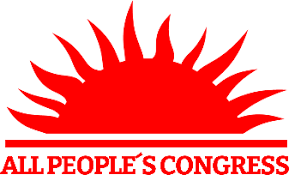By Hassan Osman Kargbo
As the Ministry of Basic and Senior Secondary Education continues its education reforms, the minister of Basic and Senior Secondary Education has reacted to the New Education Policies in the country.
At the Government Press Conference on Tuesday, February 4, 2025, Minister of Education, Conrad Sackey, provided updates on the CAS system, which now accounts for 30 percent of students’ final examination grades.
The system mandates schools to keep yearly records updated before making further entries, a policy that aims to instil accountability in academic assessments.
The announcement that 163,797 pupils from 892 schools are now registered in the system marks significant progress from the previous year’s 147,000 pupils from 816 schools. However, not all institutions have complied with the requirements. Out of 892 schools, 880 successfully uploaded their CAS-2 records, but 12 schools fell short, including four government schools, four private institutions, and four with incomplete records.
“I am very disappointed that some schools have not complied despite all the support given,” Minister Sackey remarked sternly. As a consequence, government schools that failed to submit the required records will have their salaries withheld for six months.
The news has triggered concerns among educators. Aminata Kamara, a secondary school teacher in Freetown, voiced her frustration. “Withholding salaries will not only affect teachers but also their families. The Ministry should consider alternative measures like training or additional support rather than outright punishment,” she stated.
For parents, the more pressing issue is ensuring their children are eligible for final exams. The Minister emphasized that batch registration, currently at just 32 percent, must be completed before the February 7 deadline. Failure to do so could disqualify students from taking their exams, a prospect that has many parents worried.
“Parents are doing their best to keep up with these policies, but the process is confusing,” said Fatmata Sesay, a mother of three students. “Some of us don’t even know if our children’s schools have completed the batch registration, and the deadline is so close.”
Amid these challenges, the introduction of the Teacher Licensing Process has been met with cautious optimism. According to Minister Sackey, educators would need to pass an examination and undergo professional skills training before obtaining a license. While this move is aimed at improving the quality of education, it also raises concerns about how prepared teachers are for this change.
John Gbassay, a newly recruited teacher, said he sees the licensing process as both a challenge and an opportunity. “This could uplift the teaching profession; but we need clarity on what support we’ll receive to prepare for the exams,” he said.
Despite the hurdles, Minister Sackey remains optimistic that the reforms would ultimately elevate education standards in Sierra Leone and ensure that licensed teachers can also qualify to teach in other African countries.
As the deadline for CAS compliance looms and the licensing process unfolds, all eyes are on the Ministry to see how these reforms will shape the future of education in Sierra Leone.













